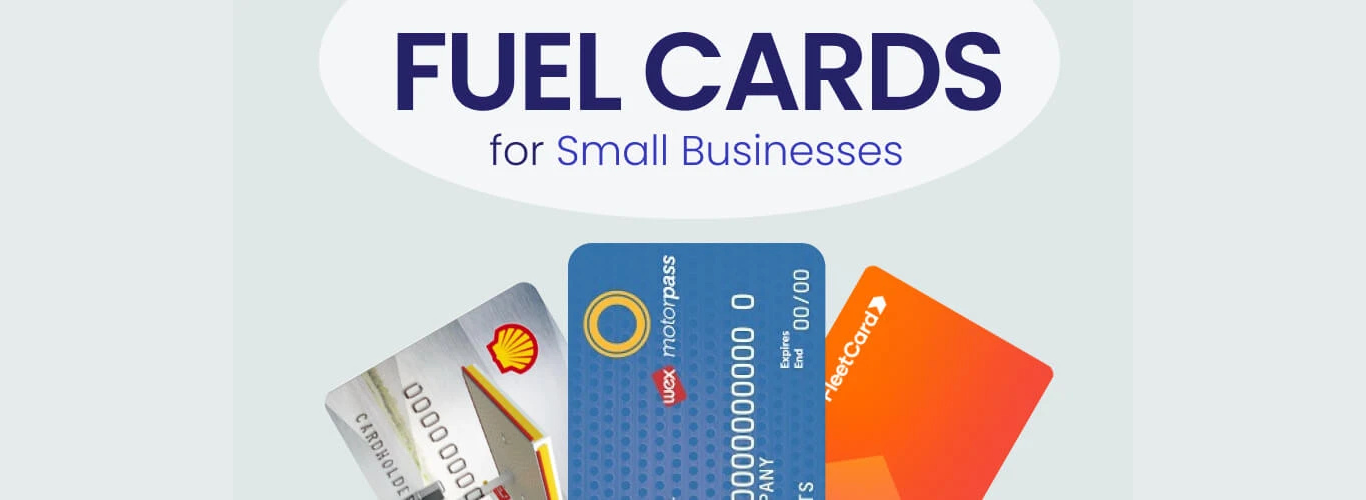Are fuel cards worth it for small business?
Are fuel cards worth it for small business?

Streamlined Expense Management: How fuel cards can help small businesses simplify their expense tracking and management.
Fuel cards offer small businesses a valuable tool to simplify their expense tracking and management. By utilizing fuel cards, businesses can streamline their processes and eliminate the need for manual tracking and reimbursement. With a fuel card, employees can simply swipe the card at the pump, keeping a record of their fuel expenses automatically. This not only saves time and effort for both employees and the accounting department, but it also reduces the chances of errors or fraudulent claims.
In addition to simplifying expense tracking, fuel cards also provide small businesses with a centralized platform for managing their fuel expenses. Many fuel card providers offer online portals or mobile apps that allow businesses to easily view and analyze their fuel spending. This means that businesses can access real-time data on fuel consumption, track trends, and identify any anomalies or excessive fuel usage. With this enhanced visibility, businesses can make informed decisions to optimize their fuel expenses and identify potential cost-saving opportunities.
Cost Savings: Exploring the potential cost savings that fuel cards can offer to small businesses, including discounts and reduced administrative fees.
Fuel cards provide small businesses with several opportunities to save money on their fuel expenses. One of the key ways they achieve this is through discounts offered by fuel card providers. These discounts can vary, but they often result in significant savings for businesses, allowing them to reduce their overall fuel costs. With fuel prices constantly fluctuating, having access to discounted fuel can help small businesses stay competitive and keep their expenses under control.
In addition to discounts, fuel cards also help small businesses save money by reducing administrative fees. Traditional expense tracking and reimbursement processes can be time-consuming and labor-intensive, resulting in additional costs for small businesses. Fuel cards streamline this process by automatically collecting data on fuel purchases and providing detailed reports. This not only saves valuable time but also eliminates the need for manual entry, reducing the chance of errors and administrative fees. By simplifying expense tracking and management, fuel cards enable small businesses to allocate their resources more efficiently and increase their overall cost savings.
Improved Cash Flow: Discussing how fuel cards can help small businesses better manage their cash flow by providing extended payment terms and reducing the need for upfront fuel expenses.
Fuel cards can play a significant role in helping small businesses improve their cash flow. One way they achieve this is by providing extended payment terms to business owners. Instead of having to pay immediately for fuel purchases, business owners can typically enjoy a grace period before payment is due. This allows for better management of finances, as it provides businesses with more time to generate revenue and ensures that cash is not tied up in fuel expenses.
In addition to extended payment terms, fuel cards also reduce the need for upfront fuel expenses. With traditional payment methods, businesses often have to pay for fuel expenses upfront and then go through the process of reimbursement. This can create a strain on cash flow, as business owners need to have enough funds to cover these expenses before being reimbursed. However, with fuel cards, all fuel expenses are charged directly to the card, eliminating the need for upfront payments and reimbursement processes. This helps small businesses to better manage their cash flow as they have more control over when and how expenses are paid.
Enhanced Reporting and Analytics: Exploring the reporting and analytics features of fuel cards that can provide valuable insights for small businesses to optimize their fuel expenses.
Fuel cards offer small businesses valuable reporting and analytics features that can significantly optimize their fuel expenses. These tools provide detailed insights into fuel consumption patterns, allowing businesses to identify areas where fuel consumption can be reduced and expenses can be minimized. By tracking fuel purchases in real-time, businesses can identify any discrepancies or potential fraudulent activities, ensuring that only authorized purchases are made. Additionally, the ability to generate customized reports and analyze data trends can help small businesses make informed decisions regarding their fuel usage, leading to more efficient operations and cost savings.
Moreover, fuel card analytics can provide small businesses with valuable information on driver behavior and vehicle performance. By monitoring metrics such as fuel efficiency and mileage, businesses can address any inefficiencies or maintenance issues that may be contributing to higher fuel costs. This data can be used to implement targeted training programs for drivers, optimize vehicle routes, and even consider alternative fuel options. Ultimately, the reporting and analytics features of fuel cards empower small businesses to optimize their fuel expenses by gaining a deeper understanding of their fuel usage and taking proactive measures to maximize efficiency and cost-effectiveness.
Increased Security: Highlighting the security measures offered by fuel cards, such as PIN protection and fraud monitoring, to protect small businesses from unauthorized fuel purchases.
Fuel cards offer small businesses enhanced security measures to protect against unauthorized fuel purchases. One key feature is PIN protection, which requires a unique personal identification number to be entered at the point of sale. This ensures that only authorized individuals can use the fuel card, reducing the risk of theft or misuse. Additionally, fuel card providers often have fraud monitoring systems in place to detect any suspicious activity. These systems can identify irregular spending patterns or unusual transactions, allowing businesses to take immediate action to prevent potential financial losses.
Another aspect of security provided by fuel cards is the ability to set purchase restrictions. Businesses can customize these restrictions based on their specific needs, such as limiting the type of fuel that can be purchased or setting spending limits for each card. By implementing these restrictions, small businesses can better control their fuel expenses and prevent unauthorized purchases. These security measures not only safeguard against fraudulent activity but also provide peace of mind to business owners, knowing that their fuel purchases are protected.
Convenience and Accessibility: How fuel cards provide small businesses with convenient access to fuel at various locations and help eliminate the need for reimbursement processes.
Fuel cards provide small businesses with a convenient solution for accessing fuel at various locations, making it easier for them to manage their fleet and keep their operations running smoothly. With a fuel card, businesses can fill up their vehicles at any participating fuel station, eliminating the need for drivers to search for specific fuel providers or worry about carrying cash or credit cards for payment. This accessibility ensures that businesses can refuel their vehicles whenever needed, saving valuable time and effort.
Furthermore, fuel cards eliminate the need for reimbursement processes, streamlining the expense tracking and management for small businesses. Instead of employees paying for fuel out of pocket and then submitting expense reports for reimbursement, fuel card transactions are directly recorded and tracked by the card provider. This simplifies the expense management process, reducing administrative burdens and ensuring accurate records of fuel expenses. By eliminating the need for employees to handle cash or submit reimbursement requests, fuel cards provide a more efficient and seamless solution for businesses to track and manage fuel costs.
